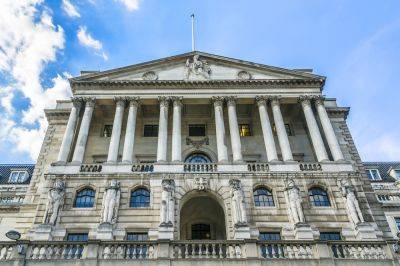BOE governor trashes crypto, stablecoins in favor of ‘enhanced digital money’
Andrew Bailey, a Bank of England (BOE) governor, delivered a speech July 10 in which he moved smoothly from the central bank’s efforts to control inflation and maintain public trust in financial institutions to why cryptocurrencies are not money. Instead of cryptocurrencies and stablecoins, he would prefer “enhanced digital money.”
The spate of bank failures in the United States and Switzerland earlier this year revealed issues of the singleness of money and settlement finality, Bailey said. Both cryptocurrencies and stablecoins fail basic tests of singleness and settlement finality, he said, without elaborating. “They are not money,” Bailey said. The passage of the Financial Services and Markets Act would bring stablecoins into line, however.
Bank of England Governor Andrew Bailey says inflation is likely to drop “markedly” this year and that the full impact of rate increases has yet to hit the economy https://t.co/kntdoEKYPr
Digital money, as it already exists, “entirely held in IT systems,” could be enhanced to become “a unit of money to which there is the capability to attach a lot more executable actions, for instance, contingent actions in so-called smart contracts,” Bailey said.
Related: Bank of England governor questions need for digital pound
A central bank digital currency (CBDC) would also be a form of enhanced digital money, Bailey said. “There is no reason that I can think of which makes well-designed enhanced digital money the sole preserve of central banks,” he added, but a CBDC would present distinct advantages:
Bailey had a different view of wholesale CBDCs. The BOE has just upgraded its Real-Time Gross Settlement (RTGS) system. Bailey said:
That is without creating a wholesale CBDC, it seems. Bailey added
Read more on cointelegraph.com






















